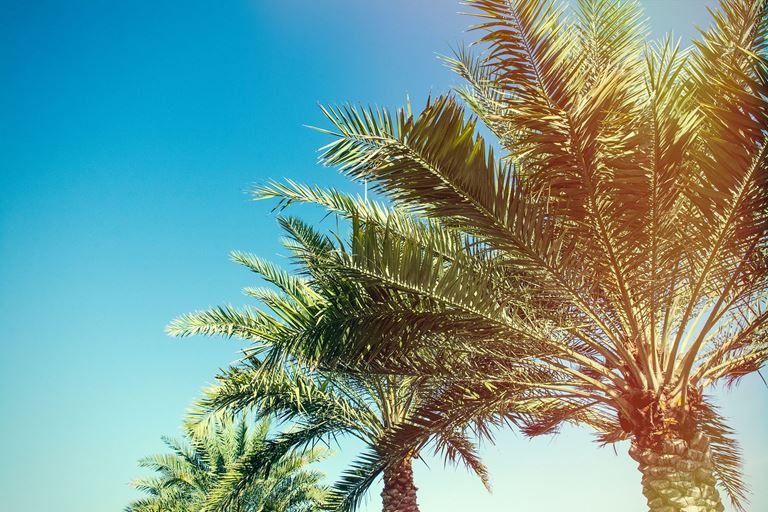Soon the summer holidays will be here and you may be heading to a summer house or a warmer destination where the UV index is extra high. It is therefore a really good idea to get a handle on which sunscreens to buy for yourself - and possibly also for the rest of the family. We have tried to describe the advantages and disadvantages of the synthetic and physical (mineral) filters.
The synthetic and physical filters
In short, sunscreens consist of a physical or synthetic filter, or a combination of both. Regardless of which filter you choose, they limit the sun's harmful UVA and UVB rays. The only difference is how they do it.
The sun's dangerous rays
UVA is present all year round, even in the shade and in cloudy weather. And they can also penetrate glass. UVA accounts for 95% of total UV radiation. UVA penetrates deep into the skin layers and can damage our DNA. This is seen in premature aging of the skin (wrinkles) or, in the worst case, skin cancer. They are found in short and long rays - it is the short UVA rays that are the most dangerous. UVB is the sun's ultraviolet rays and is very powerful. It accounts for only 5%.
UV A = A alarm watch out for your DNA → skin cancer, UV B = Burnt skin (the worst) → skin cancer and sun allergy.
Physical filter
The physical/mineral filter forms a thin film on the skin and acts like a mirror, reflecting the sun's rays. In this way, it prevents the sun's harmful rays from penetrating the skin.
Benefits of sunscreen with physical filter
* The physical filter protects against UVA (short rays and UVB)
* They do not irritate the skin around the eyes
* Does not contain endocrine disruptors
* Does not harm the corals in the world's oceans
* Does not penetrate the skin but only sits on top
* Works immediately, so you don't have to wait twenty minutes to go out in the sun
* Good for children and people with sensitive skin
Disadvantages of sunscreen with physical filter
* They can leave a white cast on the skin - this often disappears quickly.
* They can be a bit greasy depending on how much sunscreen is in them and what mixture is used
* May be a little harder to spread on the skin
* You need to be extra careful about applying enough sunscreen, as the sunscreen sits on top of the skin and is therefore easily washed off when bathing and sweating.
* Does not protect against long UVA rays
Synthetic filter
Unlike physical filters, synthetic filters do not sit on top of the skin, but penetrate into the skin. This way, the sun does not reach the lower layers of the skin and cause damage. Synthetic sunscreens, unlike physical ones, cannot be seen on the skin, and this may be one of the reasons why some people prefer synthetic filters over physical ones.
Advantages of synthetic filter
* Some people find it easier to apply
* Protects against all the sun's dangerous rays
Disadvantages of synthetic filter
* Can cause allergies and be hormone disruptors
* May sting and irritate the area around the eyes
* Contains "chemistry" (not natural ingredients)
*Can contribute to the extinction of corals in the world's oceans
*May leave yellow stains on clothes
So which factor should I use?
It is rarely worth buying a factor higher than factor 30 if you are going to sunbathe in Denmark. If you use a factor 30, you are protected against 93% of UVA and UVB rays and you only get 2% more protection if you use a factor 50, for example. But on the other hand, there is often 50% more chemistry in factor 50%.
Once the “base color” is applied, you can make do with a factor 15, which you must remember to apply regularly and with enough sunscreen. Factor 15 is good to use all year round.
If you travel south, and thus closer to the equator, remember to apply even more sunscreen several times a day. Both because you often swim more and to make sure that the sunscreen has its optimal strength. It can be a good idea to apply, wait 20 minutes, and apply again. A small stick with factor 50 is good for the bridge of the nose.
Waterproof sun products
Regardless of whether you choose a sunscreen that is water-repellent or water-resistant, you should be aware that no product will last all day if you bathe, swim, sweat, and towel dry. There is currently no legislation that dictates when a product can be called water-resistant, so it is entirely up to the manufacturer to assess when their products - according to them, are water-resistant.
For the little ones
Shade and light clothing are the best way to protect little ones. It also applies to avoiding the sun during the hottest hours, between 12:00 and 15:00, and to avoid sunburn, as this is when the skin is really damaged.
This advice applies to everyone.

